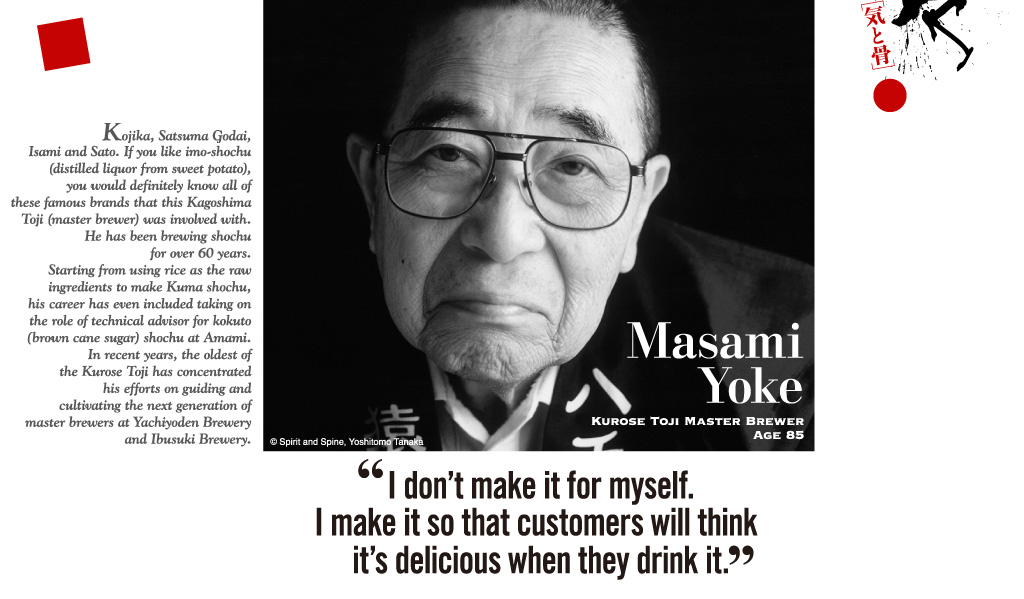Kasasano-misaki is the former name for the Noma Peninsula, which is on the southwest tip of the Satsuma Peninsula. That name is also written down in the Record of Ancient Matters (Japan’s oldest historical record), and now there is Kasasa in Minamisatsuma city. The Yoke family’s ancestors were Satusma samurai that lived in Kurose in this area. In the Meiji period, as the amount of arable land was restricted, the number of people who left their village and worked away from home making shochu in various places’ breweries increased, and the Kurose Toji group was formed. Yoke was also drawn into this style, and from his mid-twenties, in a time when they used the old Japanese system of weights and measures, he worked as a master brewer who was responsible for the whole workplace. In a time when there were no computers and mechanization hadn’t advanced, shochu was literally handmade. The master brewer bore a heavy responsibility for the finished product of what was a series of hard and dull operations.
Maybe it was the Satsuma Hayato spirit, or maybe it was because it was an artisan’s world where success or failure depended on your real ability, but that Kurose Toji took the brands he was entrusted with, and slowly but surely turned them into a success, then repeated this challenge at other breweries again and again. Every time he left a job, requests for his services would come flooding in, because a great number of breweries wanted his skills. While he endeavored to use his creativity and imagination to improve the brewing, as the factory manager and an executive, he also became involved in improving the work environment and the manufacturing equipment.
His achievements were also recognized by the country, and in 2009 he was the first person from the imo-shochu world to be chosen for the honor of being designated as a contemporary master craftsman. During its golden age there were close to 400 Kurose Toji, but now their numbers have dwindled, however the essence of how to make delicious shochu is being passed on by this craftsmen to the next generation, so that he is steadily succeeded.







































































































